HSBC 2008 Annual Report Download - page 17
Download and view the complete annual report
Please find page 17 of the 2008 HSBC annual report below. You can navigate through the pages in the report by either clicking on the pages listed below, or by using the keyword search tool below to find specific information within the annual report.-
 1
1 -
 2
2 -
 3
3 -
 4
4 -
 5
5 -
 6
6 -
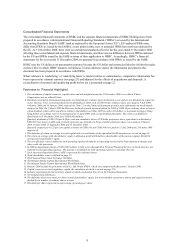 7
7 -
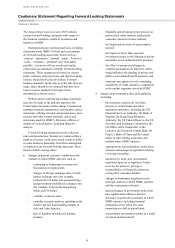 8
8 -
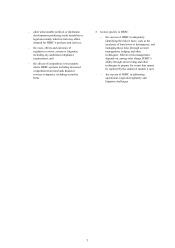 9
9 -
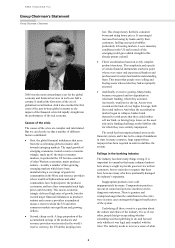 10
10 -
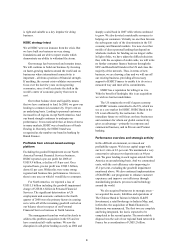 11
11 -
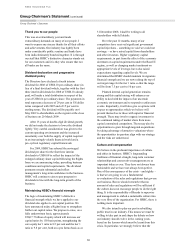 12
12 -
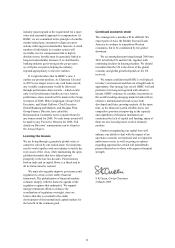 13
13 -
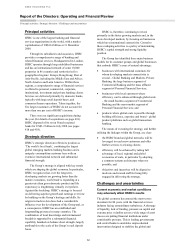 14
14 -
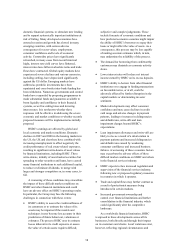 15
15 -
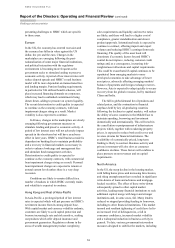 16
16 -
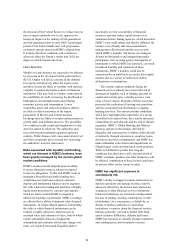 17
17 -
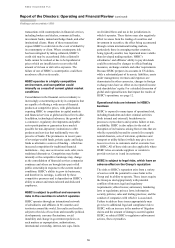 18
18 -
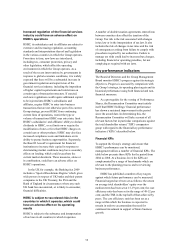 19
19 -
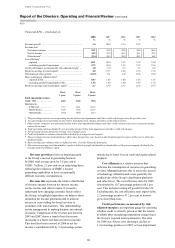 20
20 -
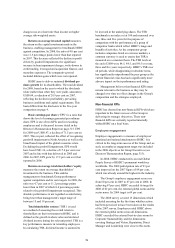 21
21 -
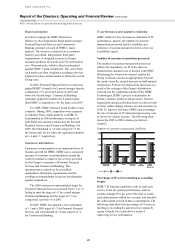 22
22 -
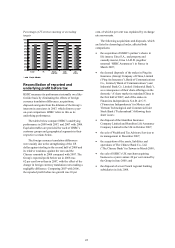 23
23 -
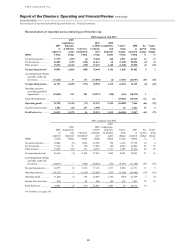 24
24 -
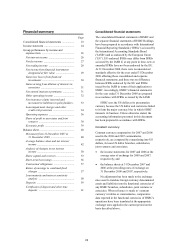 25
25 -
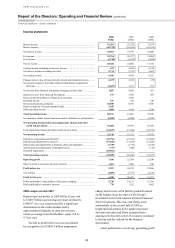 26
26 -
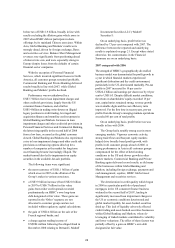 27
27 -
 28
28 -
 29
29 -
 30
30 -
 31
31 -
 32
32 -
 33
33 -
 34
34 -
 35
35 -
 36
36 -
 37
37 -
 38
38 -
 39
39 -
 40
40 -
 41
41 -
 42
42 -
 43
43 -
 44
44 -
 45
45 -
 46
46 -
 47
47 -
 48
48 -
 49
49 -
 50
50 -
 51
51 -
 52
52 -
 53
53 -
 54
54 -
 55
55 -
 56
56 -
 57
57 -
 58
58 -
 59
59 -
 60
60 -
 61
61 -
 62
62 -
 63
63 -
 64
64 -
 65
65 -
 66
66 -
 67
67 -
 68
68 -
 69
69 -
 70
70 -
 71
71 -
 72
72 -
 73
73 -
 74
74 -
 75
75 -
 76
76 -
 77
77 -
 78
78 -
 79
79 -
 80
80 -
 81
81 -
 82
82 -
 83
83 -
 84
84 -
 85
85 -
 86
86 -
 87
87 -
 88
88 -
 89
89 -
 90
90 -
 91
91 -
 92
92 -
 93
93 -
 94
94 -
 95
95 -
 96
96 -
 97
97 -
 98
98 -
 99
99 -
 100
100 -
 101
101 -
 102
102 -
 103
103 -
 104
104 -
 105
105 -
 106
106 -
 107
107 -
 108
108 -
 109
109 -
 110
110 -
 111
111 -
 112
112 -
 113
113 -
 114
114 -
 115
115 -
 116
116 -
 117
117 -
 118
118 -
 119
119 -
 120
120 -
 121
121 -
 122
122 -
 123
123 -
 124
124 -
 125
125 -
 126
126 -
 127
127 -
 128
128 -
 129
129 -
 130
130 -
 131
131 -
 132
132 -
 133
133 -
 134
134 -
 135
135 -
 136
136 -
 137
137 -
 138
138 -
 139
139 -
 140
140 -
 141
141 -
 142
142 -
 143
143 -
 144
144 -
 145
145 -
 146
146 -
 147
147 -
 148
148 -
 149
149 -
 150
150 -
 151
151 -
 152
152 -
 153
153 -
 154
154 -
 155
155 -
 156
156 -
 157
157 -
 158
158 -
 159
159 -
 160
160 -
 161
161 -
 162
162 -
 163
163 -
 164
164 -
 165
165 -
 166
166 -
 167
167 -
 168
168 -
 169
169 -
 170
170 -
 171
171 -
 172
172 -
 173
173 -
 174
174 -
 175
175 -
 176
176 -
 177
177 -
 178
178 -
 179
179 -
 180
180 -
 181
181 -
 182
182 -
 183
183 -
 184
184 -
 185
185 -
 186
186 -
 187
187 -
 188
188 -
 189
189 -
 190
190 -
 191
191 -
 192
192 -
 193
193 -
 194
194 -
 195
195 -
 196
196 -
 197
197 -
 198
198 -
 199
199 -
 200
200 -
 201
201 -
 202
202 -
 203
203 -
 204
204 -
 205
205 -
 206
206 -
 207
207 -
 208
208 -
 209
209 -
 210
210 -
 211
211 -
 212
212 -
 213
213 -
 214
214 -
 215
215 -
 216
216 -
 217
217 -
 218
218 -
 219
219 -
 220
220 -
 221
221 -
 222
222 -
 223
223 -
 224
224 -
 225
225 -
 226
226 -
 227
227 -
 228
228 -
 229
229 -
 230
230 -
 231
231 -
 232
232 -
 233
233 -
 234
234 -
 235
235 -
 236
236 -
 237
237 -
 238
238 -
 239
239 -
 240
240 -
 241
241 -
 242
242 -
 243
243 -
 244
244 -
 245
245 -
 246
246 -
 247
247 -
 248
248 -
 249
249 -
 250
250 -
 251
251 -
 252
252 -
 253
253 -
 254
254 -
 255
255 -
 256
256 -
 257
257 -
 258
258 -
 259
259 -
 260
260 -
 261
261 -
 262
262 -
 263
263 -
 264
264 -
 265
265 -
 266
266 -
 267
267 -
 268
268 -
 269
269 -
 270
270 -
 271
271 -
 272
272 -
 273
273 -
 274
274 -
 275
275 -
 276
276 -
 277
277 -
 278
278 -
 279
279 -
 280
280 -
 281
281 -
 282
282 -
 283
283 -
 284
284 -
 285
285 -
 286
286 -
 287
287 -
 288
288 -
 289
289 -
 290
290 -
 291
291 -
 292
292 -
 293
293 -
 294
294 -
 295
295 -
 296
296 -
 297
297 -
 298
298 -
 299
299 -
 300
300 -
 301
301 -
 302
302 -
 303
303 -
 304
304 -
 305
305 -
 306
306 -
 307
307 -
 308
308 -
 309
309 -
 310
310 -
 311
311 -
 312
312 -
 313
313 -
 314
314 -
 315
315 -
 316
316 -
 317
317 -
 318
318 -
 319
319 -
 320
320 -
 321
321 -
 322
322 -
 323
323 -
 324
324 -
 325
325 -
 326
326 -
 327
327 -
 328
328 -
 329
329 -
 330
330 -
 331
331 -
 332
332 -
 333
333 -
 334
334 -
 335
335 -
 336
336 -
 337
337 -
 338
338 -
 339
339 -
 340
340 -
 341
341 -
 342
342 -
 343
343 -
 344
344 -
 345
345 -
 346
346 -
 347
347 -
 348
348 -
 349
349 -
 350
350 -
 351
351 -
 352
352 -
 353
353 -
 354
354 -
 355
355 -
 356
356 -
 357
357 -
 358
358 -
 359
359 -
 360
360 -
 361
361 -
 362
362 -
 363
363 -
 364
364 -
 365
365 -
 366
366 -
 367
367 -
 368
368 -
 369
369 -
 370
370 -
 371
371 -
 372
372 -
 373
373 -
 374
374 -
 375
375 -
 376
376 -
 377
377 -
 378
378 -
 379
379 -
 380
380 -
 381
381 -
 382
382 -
 383
383 -
 384
384 -
 385
385 -
 386
386 -
 387
387 -
 388
388 -
 389
389 -
 390
390 -
 391
391 -
 392
392 -
 393
393 -
 394
394 -
 395
395 -
 396
396 -
 397
397 -
 398
398 -
 399
399 -
 400
400 -
 401
401 -
 402
402 -
 403
403 -
 404
404 -
 405
405 -
 406
406 -
 407
407 -
 408
408 -
 409
409 -
 410
410 -
 411
411 -
 412
412 -
 413
413 -
 414
414 -
 415
415 -
 416
416 -
 417
417 -
 418
418 -
 419
419 -
 420
420 -
 421
421 -
 422
422 -
 423
423 -
 424
424 -
 425
425 -
 426
426 -
 427
427 -
 428
428 -
 429
429 -
 430
430 -
 431
431 -
 432
432 -
 433
433 -
 434
434 -
 435
435 -
 436
436 -
 437
437 -
 438
438 -
 439
439 -
 440
440 -
 441
441 -
 442
442 -
 443
443 -
 444
444 -
 445
445 -
 446
446 -
 447
447 -
 448
448 -
 449
449 -
 450
450 -
 451
451 -
 452
452 -
 453
453 -
 454
454 -
 455
455 -
 456
456 -
 457
457 -
 458
458 -
 459
459 -
 460
460 -
 461
461 -
 462
462 -
 463
463 -
 464
464 -
 465
465 -
 466
466 -
 467
467 -
 468
468 -
 469
469 -
 470
470 -
 471
471 -
 472
472
 |
 |
15
the decision of the Federal Reserve to reduce interest
rates to unprecedentedly low levels, appear to be
having an impact on the trading of both guaranteed
and non-guaranteed debt in early 2009. A prolonged
period of low Federal funds rates will put pressure
on deposit spreads earned on HSBC’s deposit base.
It is likely that these conditions will continue to
adversely affect the Group’s results into 2010, the
degree to which remains uncertain.
Latin America
Markets in Latin America are expected to be affected
by recession in the developed world, particularly in
the US. Output will fall as a decline in the demand
for exports will adversely affect the export sector,
and these factors are likely to combine with currency
volatility to weaken the balance sheets of financial
institutions. This may lead to a further contraction in
the availability of credit, increasing the likelihood of
bankruptcies and unemployment and reducing
economic activity and consumption. Lower
commodity prices and reduced remittance inflows
are likely to affect economies in the region,
particularly in Mexico and Central America.
Exchange rates are likely to remain under pressure as
growth stalls, and inflation may rise. The possibility
of a combined credit crunch and stagflation in Latin
America cannot be ruled out. The authorities may
react with stricter prudential regulation and price
controls. Public finances will come under strain if oil
and other commodity prices remain low, restricting
the authorities’ room for manoeuvre.
Risks associated with liquidity and funding,
which are inherent in HSBC’s business, have
been greatly increased by the current global
market conditions
HSBC’s business model depends upon its ability
to access financial resources whenever required
to meet its obligations. To this end, HSBC seeks to
maintain a diversified and stable funding base
comprising core retail and corporate customer
deposits and institutional balances and to augment
this with wholesale funding and portfolios of highly
liquid assets diversified by currency and maturity
which are held to enable HSBC to respond to
unforeseen liquidity requirements. HSBC’s earnings
are affected by its ability to properly value financial
instruments. In certain illiquid markets, determining
the value at which financial instruments can be
realised is highly subjective, and processes to
ascertain value and estimates of value, both of which
require substantial elements of judgement,
assumptions and estimates (which may change over
time), are required. Increased illiquidity adds to
uncertainty over the accessibility of financial
resources and may reduce capital resources as
valuations decline. Rating agencies, which determine
HSBC’s own credit ratings and thereby influence the
Group’s cost of funds, take into consideration
management effectiveness and the success with
which HSBC’s liquidity risk factors are managed.
Actions by third parties and independent market
participants, such as rating agency downgrades of
instruments to which HSBC has exposure, can result
in reduced liquidity and valuations of those
instruments. HSBC’s liquidity could also be
constrained by an inability to access the debt capital
markets due to a variety of unforeseen market
dislocations or interruptions.
The extreme market conditions facing the
financial services industry have been reflected in
shortages of liquidity, lack of funding, pressure on
capital and extreme price volatility across a wide
range of asset classes. Illiquidity of these assets has
prevented the realisation of existing asset positions
and has constrained risk distribution in ongoing
banking activities. The extreme market conditions,
which have highlighted the importance of a strong
diversified core deposit base, have lead to increased
competition for such deposits and the risk of deposit
migration. HSBC’s Global Banking and Markets
business operates in the markets affected by
illiquidity and extreme price volatility, either directly
or indirectly, through exposures to securities, loans,
derivatives and other commitments, and HSBC has
made substantial write-downs and impairments on
illiquid legacy credit and structured credit positions.
While it is difficult to predict how long the
conditions described above will exist and which of
HSBC’s markets, products and other businesses will
be affected, continuation of these factors could have
an adverse effect on the Group’s results.
HSBC has significant exposure to
counterparty risk
HSBC’s ability to engage in routine transactions to
fund its operations and manage its risks could be
adversely affected by the actions and commercial
soundness of other financial services institutions.
Financial institutions are extremely interdependent
because of trading, clearing, counterparty or other
relationships. As a consequence, a default by, or
decline in market confidence in, individual
institutions, or anxiety about the financial services
industry generally, can lead to further individual
and/or systemic difficulties, defaults and losses.
HSBC has exposure to virtually all major industries
and counterparties, and it routinely executes
